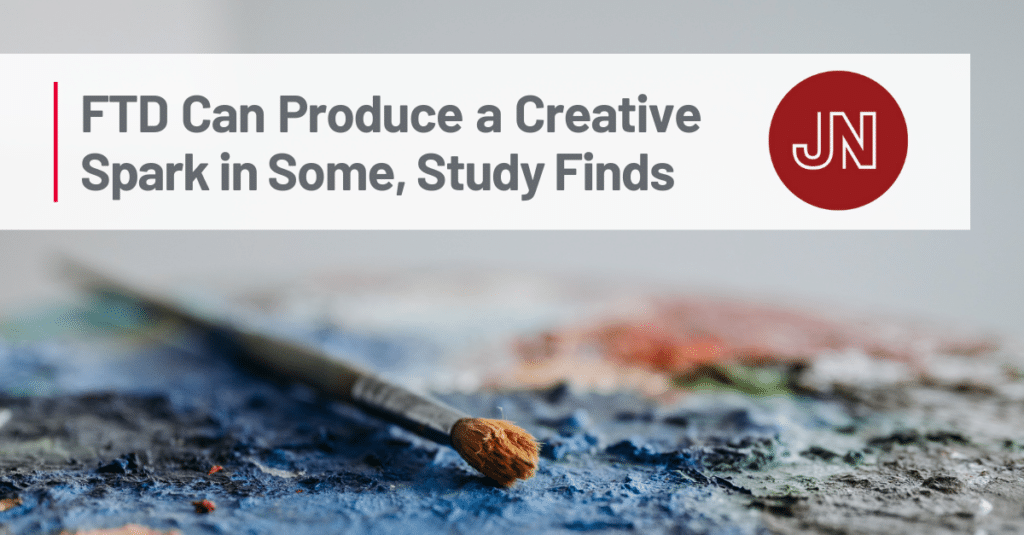Nation’s Leading Frontotemporal Dementia Organization Adds Four Board Members to Help Further Its Mission
The Association for Frontotemporal Degeneration (AFTD) has welcomed four additions to its Board of Directors, further bolstering its commitment to supporting a community of people diagnosed with frontotemporal degeneration (FTD), their care partners, healthcare professionals, and FTD researchers. FTD is the most common dementia for people under age 60, and is best known for being…
Read More“I Vowed to Take Care of Him; Then He Filed for Divorce” – Article Shares Woman’s Tumultuous FTD Journey
In a recent article published on the website The Cut, author Katherine Nichols shares the tumultuous FTD journey that followed her husband’s diagnosis. When their relationship began, Nichols and her husband “E.” had an idyllic marriage that she characterized as a “true partnership.” “He welcomed and treated my children as his own,” Nichols said. “We…
Read MoreIowa Woman Discusses Her Genetic FTD Status in Fox News Interview
Alyssa Nash, a 27-year-old hospital receptionist, shared her experiences on the FTD journey and learning she carries a genetic FTD causing mutation in a May 19 article published by Fox News. As shared by Nash’s mother, AFTD Ambassador Deb Scharper, in an interview with The Healthy, Nash’s father, Tommy, first began to show signs of…
Read MoreDr. Chiadi Onyike Named AFTD Medical Advisory Council Chair-Elect
During their annual meeting at the 2023 Education Conference, AFTD’s Board of Directors named Chiadi Onyike, MD, as Chair-Elect of the Medical Advisory Council (MAC). Dr. Onyike will serve as chair-elect while Bradford Dickerson, MD, the current serving chair of the MAC, completes the remaining two years of his term. Following Dr. Dickerson’s term, Dr.…
Read MoreGuest Feature: “That Thin Thread Blooms into A Rainbow” – The FTD Journey from the LGBTQIA+ Perspective
The FTD journey is wrought with hardships, with families often facing a lengthy diagnostic process, steep costs for proper FTD care, and feelings of isolation. But some living with FTD face added difficulty. Members of the LGBTQIA+ community might also contend with hardships related to their sexual orientation or gender identity. For care partner Richard…
Read MoreTips & Advice: Documenting Changing Behavior
Many behaviors caused by FTD, such as aggression, disinhibition, delusions, and apathy, are challenging and distressing for people diagnosed and care partners. Such behaviors often result from an unmet need, negative emotions, anxiety, or pain. Complicating matters, these behaviors – and their triggers – will change as the disease progresses. However, with patience and a…
Read MoreAdvancing Hope: Accelerating Drug Discovery for FTD – New Awards From a Long-Standing Partnership
Before FTD researchers can initiate a clinical trial of a new medication, they must carry out preclinical testing to better understand its effects on the body, confirm that it binds to its intended target, determine the best dose, and demonstrate its effectiveness in animal models of FTD. Since 2007, AFTD has partnered with the Alzheimer’s…
Read MoreWave Life Sciences Ends FTD/ALS Trial of WVE-004
Yesterday, Wave Life Sciences announced that it ended its FOCUS-C9 clinical trial for the drug WVE-004, which was being evaluated as a potential treatment for FTD and amyotrophic lateral sclerosis (ALS) cases associated with a variation in the gene C9orf72, the most common genetic cause of FTD. Despite this news, AFTD applauds Wave Life Science…
Read MoreAdvancing Hope: Major Leaders in FTD and ALS Research Gather in Arizona for Summit on C9orf72 Gene
In March, prominent leaders in FTD and ALS research gathered in Scottsdale, Arizona, for the first-ever summit on the C9orf72 gene, variations of which constitute the most common cause of genetic FTD and ALS. The event was supported by generous funding from David and Weezie Reese and was hosted by the Barrow Neurological Foundation. The…
Read MoreFTD Can Produce a Creative Spark in Some, Study Finds
Brain atrophy patterns specific to FTD can let loose previously suppressed creative abilities in some people diagnosed with the disease, according to a study published earlier this year in JAMA Neurology. The phenomenon has been studied by researchers for over 20 years, including prominent FTD researchers such as Bruce Miller, MD, a distinguished professor at…
Read More









